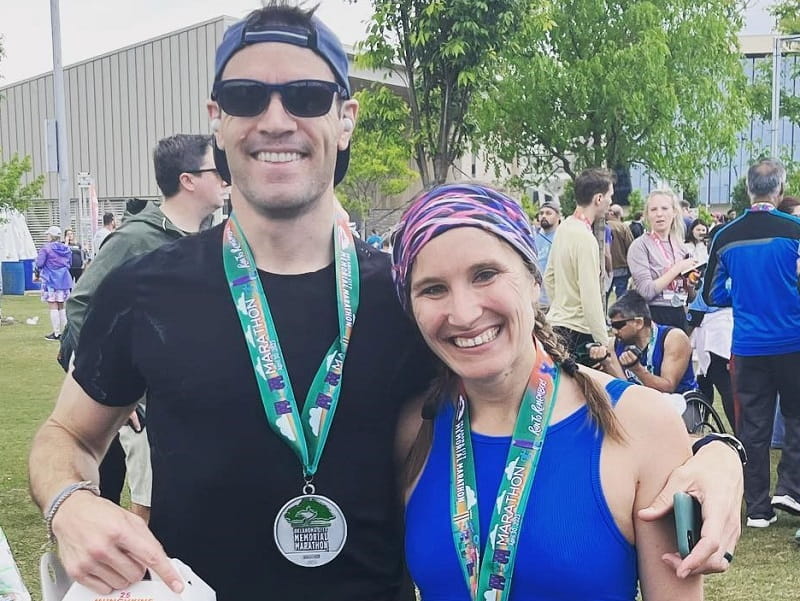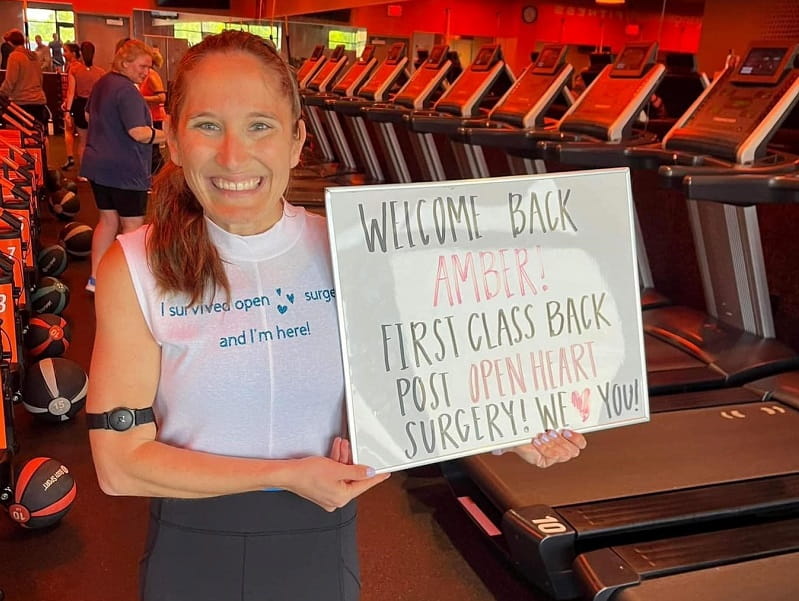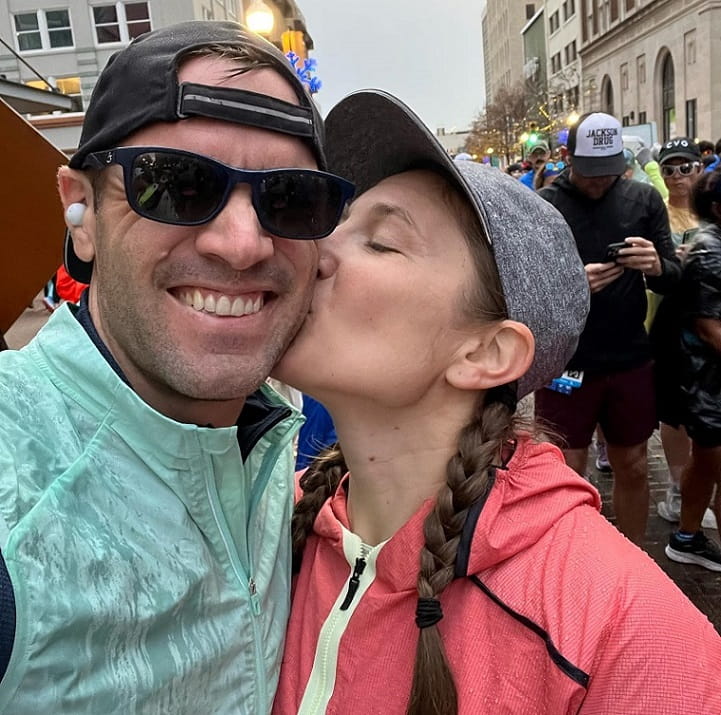3 days after running a marathon, her aorta tore
By Leslie Barker, American Heart Association News

The new partner at the law firm where Zach Williams works heard him talking about what happened to his wife.
Amber Williams was 35 and seemed perfectly healthy when she felt excruciating chest pain. She'd had an aortic dissection, and it's often diagnosed during an autopsy.
"That's a weird way for you to tell me you're a widower," the partner said.
To which Zach replied, "Oh, no. My wife is very much alive."
But when he saw Amber at her office that day in early May 2023, three days after they'd completed the Oklahoma City Marathon, her coloring terrified him.
"I put on an Oscar-winning performance not to show how shocked I was," he said. "She was gray. I'd never seen that color before and I haven't seen it since. I thought, 'I need to try to stay calm.'"
Amber, who lives in Moore, Oklahoma, went to the closest emergency room. Doctors considered that she might have issues with her lungs or kidneys, or maybe she was just dehydrated. The cardiologist on duty wasn't comfortable with any of those suggestions and decided to keep her in the hospital overnight. Part of his concern stemmed from her history of heart problems.
At 16, she was diagnosed with Turner syndrome, a connective tissue disorder that increases the risk of developing heart disease. Her primary care physician ran tests every few years to make sure all was normal. It always was, until about nine months earlier, when a CT scan showed her aorta to be slightly enlarged. A cardiologist investigated further and said surgery wasn't necessary unless it became more enlarged.
The next morning in the hospital, the wary cardiologist repeated tests that had been done when Amber came into the ER. That's when he saw that the aorta wasn't enlarged – it had torn. Excessive bleeding likely blocked the view on the initial tests.
This changed everything. Within an hour, Amber was transferred to another hospital, where she underwent surgery on her aorta.
The aorta is the largest artery in the body. It's in the shape of a candy cane as it leaves the heart. Doctors replaced most of Amber's upper part, the curve.
She spent the next 10 days in the hospital. A thought haunted her: Had she been discharged from the hospital that first night, there's no telling how things would've turned out. But her aorta likely would not have been rebuilt as soon as it was.
Once home, Amber felt strong. She was walking a lot which – said the avid exerciser – "saved my sanity." She even walked a 5K a few weeks after surgery. That, Zach said, "was ill-advised, but I wasn't going to stop her. All gas and no brakes is her attitude."
About a year later, doctors determined they needed to repair more of her aorta. She had the surgery in August; this time, doctors had to saw through her sternum, making the recovery more excruciating.

But Amber is as tough as she is stubborn – qualities Zach has always loved about her since they met in graduate school in 2013, and which he now cherishes more than ever. When her blood pressure skyrocketed, she didn't get discouraged. Instead, she focused on ratcheting up the healthy lifestyle choices that could help control her blood pressure, primarily her diet and exercise. Both were already good; she made them better. She even completed a half-marathon with Zach, running and walking 13.1 miles.
"It's so nice being able to do all this to stay healthy," she said. "There's so much going on with my heart that I can't control, but this – what I eat and how I exercise – I can control."
Amber said her ordeal has reshaped her perspective on life.
"Little things that might have upset or frustrated me don't as much," she said. "I have a better attitude: This doesn't matter. I'm here. I'm going to be fine."
There's likely one – and hopefully only one – step left in her medical journey. Doctors will replace the lower part of her aorta.
The extensive surgery could be challenging, and there will of course be another recovery. Still, she and Zach have been through a lot already. They credit her resilience to being in such good shape before her aorta tore. They also get a kick out of a note a doctor wrote on Amber's chart, a description they say sums her up perfectly: "Amber Williams, 35-year-old aortic dissection patient. Active, perhaps excessively so."
So it's not especially surprising that Amber told Zach she plans for both of them to run the New York City Marathon in 2025.
"I feel so fortunate, that's for sure," Amber said. "I feel there's a purpose for all this."

Stories From the Heart chronicles the inspiring journeys of heart disease and stroke survivors, caregivers and advocates.





